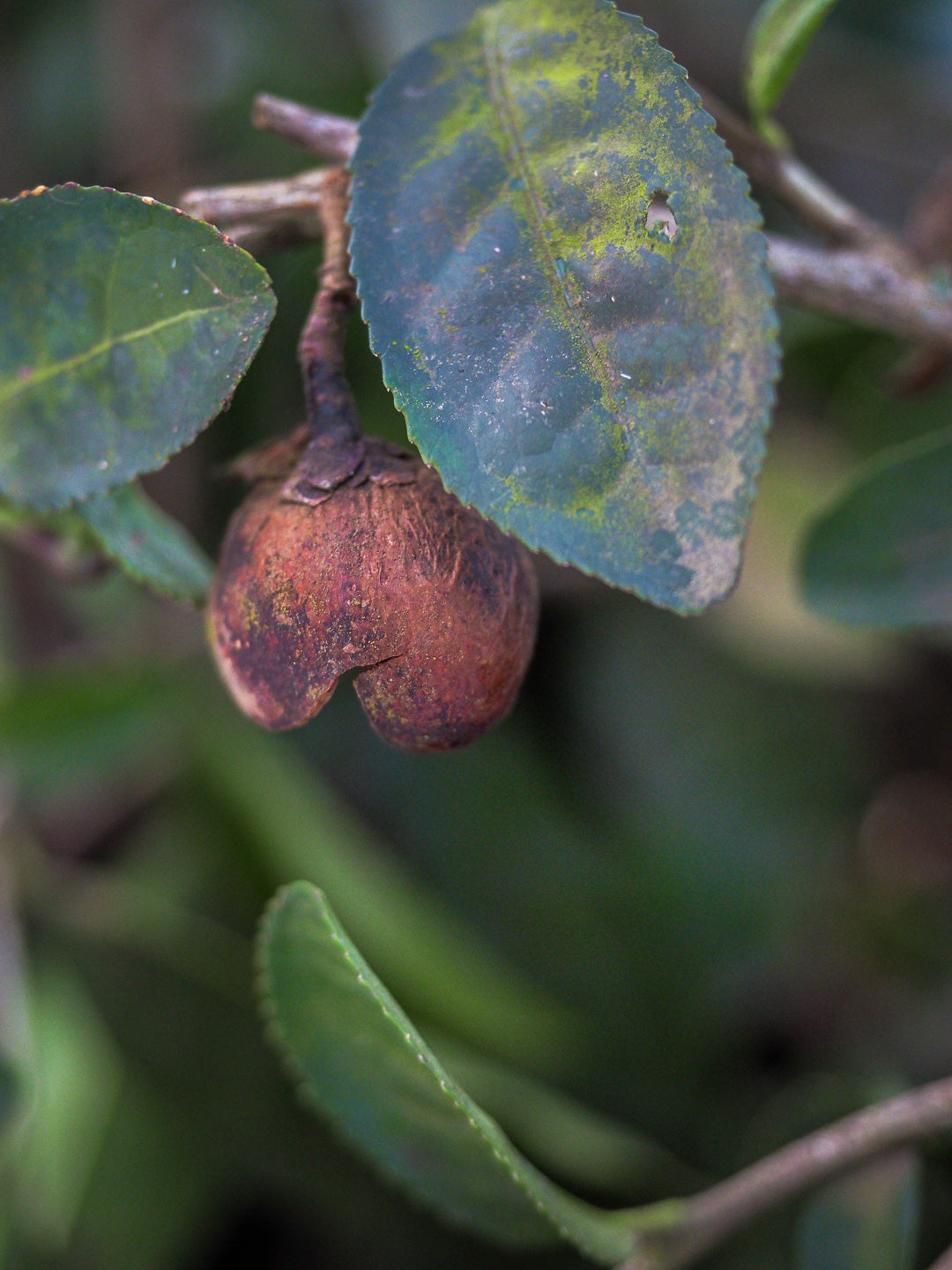
A Winter Visit to a Georgian Tea Plantations
As I stepped onto the rolling hills of the Georgian countryside last winter, I was immediately captivated by the breathtaking scenery around me. The crisp winter air carried a hint of freshness, and the misty clouds hung low over the landscape, adding an air of mystery to the scene. I was embarking on a unique journey to explore the tea plantations of Georgia, a country with a tea heritage that dates back 170 years. With curiosity and excitement in my heart, I set out to discover the magic of Georgian tea production firsthand.

Visiting a tea plantation in winter may not be the traditional time to explore the Georgian tea industry, as tea harvesting typically takes place in the warmer months. I was intrigued by the idea of witnessing the tea fields blanketed in snow and discovering how tea is cultivated during the colder months as you never see anything like that in the southern China or Taiwan.

While winter may not be the typical season for tea production, this time may offer a different perspective on the tea industry in Georgia, as it may be a less busy time for tea producers compared to the peak tea harvesting season in warmer months. This could potentially provide an opportunity to connect with tea makers, learn about their craft, and build meaningful relationships with them. Winter offered a special opportunity to connect with the people behind the tea, to hear their stories, and to gain insights into their traditions and techniques. With a warm coat and an open heart, I set out to discover the human side of Georgian tea production during this peaceful season.

I had the opportunity to connect with two unique tea producers - Estonian tea farmers Renegades Tea and local passionate tea producer Greengold Company. Despite the chilly weather, the warmth of the people and their passion for tea production shone through. Renegades Tea, known for their innovative and unconventional approach to tea making, impressed me with their experimental teas and commitment to sustainability. On the other hand, Greengold Company, with their rich heritage and traditional methods, left me in awe of their dedication and passion. Both Renegades Tea and Greengold Company shared their stories, expertise, and hospitality, offering a captivating insight into the world of Georgian tea during the winter season. I'm intending to cover these topics in a future writing piece.

The history of Georgian tea dates back to the 19th century, when Russian traders first introduced tea to the region. Georgia's climate and fertile soil proved to be an ideal environment for tea cultivation, and the plant was soon grown and processed locally.

Georgian tea culture is relatively young compared to China's, which has a rich history of tea cultivation and consumption dating back over 5,000 years. However, despite its relative youth, Georgian tea culture has developed into a unique and distinctive tradition that reflects the warmth, hospitality, and community spirit that are deeply ingrained in Georgian society.

While Georgian tea culture may not have the same historical roots as China's, it has nevertheless played a significant role in shaping the country's identity and cultural heritage. Georgian tea has become an essential part of daily life, a symbol of friendship and hospitality, and a point of pride for the country's farmers, producers, and tea lovers.

During the Soviet era, Georgian tea production was highly regulated and centralized, with most of the tea produced in large state-owned factories. When the Soviet Union collapsed, the Georgian tea industry went down with it. Once the borders opened, cheaper tea arrived from other countires – there was no market for thousands of tons of low-quality Georgian tea. Tea industry suffered a decline after the country gained independence from the Soviet Union in 1991, leading to the abandonment of many tea plantations, the industry has since experienced a resurgence. In recent years, there has been a renewed focus on revitalizing the country's tea industry and restoring abandoned tea plantations.

One of the key initiatives aimed at reviving the Georgian tea industry is the Tea Project, a government-led program that seeks to promote tea cultivation and production across the country. The program has provided funding, technical support, and training to tea farmers, helping to boost the quality and quantity of Georgian tea.

As a result of these efforts, the Georgian tea industry has experienced a resurgence in recent years, with abandoned tea plantations being restored and new ones being established. The country's unique tea is once again gaining recognition around the world, with Georgian tea becoming popular among tea lovers and connoisseurs. One of the reasons Georgian tea is popular is due to the country's ideal climate and soil conditions for tea cultivation. The tea plant thrives in Georgia's subtropical climate, where warm, humid summers and mild winters provide optimal growing conditions.

While Georgian tea may not be considered "ceremonial grade" like some teas in Chinese and Japanese cultures, it is still highly regarded for its unique flavor. Georgian tea is often consumed in social settings, such as at family gatherings or during breaks from work. Georgian tea, also known as "kitchen tea" or "everyday tea," is a type of black tea that is commonly consumed as a staple beverage for daily consumption. It is known for its robust flavor and is typically enjoyed with sugar or honey, sometimes accompanied by lemon or mint. It is often brewed strong and served in small cups.

The decline of the Georgian tea industry, as mentioned earlier, was primarily due to economic challenges, infrastructure problems, low productivity, and political instability, which affected the overall production and quality of tea. However, despite these challenges, Georgian tea remains a beloved part of the country's culinary culture and is still enjoyed by many Georgians as a popular everyday tea option. Efforts have been made to revive the industry, improve tea production methods, and promote Georgian tea in international markets to help restore its former glory.

2 comments
I have tasted Georgian tea n it’s too good. My children r studying in Georgia n they hd got me one packet.looking forward for more.
I have tasted Georgian tea n it’s too good. My children r studying in Georgia n they hd got me one packet.looking forward for more.